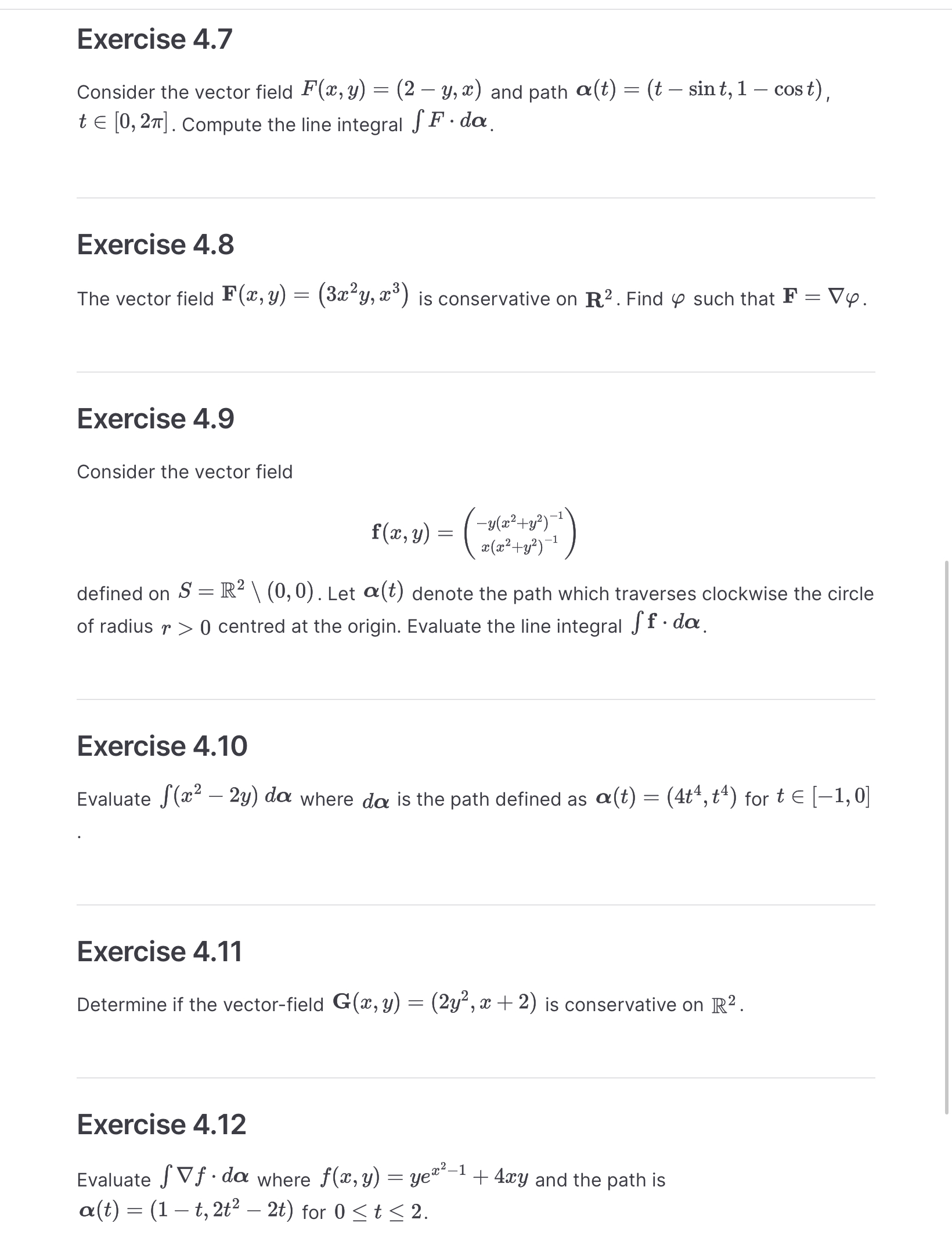Answered step by step
Verified Expert Solution
Question
1 Approved Answer
Exercise 4.7 Consider the vector field F(x,y)=(2-y,x) and path alpha (t)=(t-sint,1-cost) , tin[0,2pi ] . Compute the line integral int F*dalpha . Exercise 4.8 The
Exercise 4.7\ Consider the vector field
F(x,y)=(2-y,x)and path
\\\\alpha (t)=(t-sint,1-cost),\
tin[0,2\\\\pi ]. Compute the line integral
\\\\int F*d\\\\alpha .\ Exercise 4.8\ The vector field
F(x,y)=(3x^(2)y,x^(3))is conservative on
R^(2). Find
\\\\phi such that
F=grad\\\\phi .\ Exercise 4.9\ Consider the vector field\
f(x,y)=([-y(x^(2)+y^(2))^(-1)],[x(x^(2)+y^(2))^(-1)])\ defined on
S=(R^(2))/(/)(0,0). Let
\\\\alpha (t)denote the path which traverses clockwise the circle\ of radius
r>0centred at the origin. Evaluate the line integral
\\\\int f*d\\\\alpha .\ Exercise 4.10\ Evaluate
\\\\int (x^(2)-2y)d\\\\alpha where
d\\\\alpha is the path defined as
\\\\alpha (t)=(4t^(4),t^(4))for
tin[-1,0]\ Exercise 4.11\ Determine if the vector-field
G(x,y)=(2y^(2),x+2)is conservative on
R^(2).\ Exercise 4.12\ Evaluate
\\\\int gradf*d\\\\alpha where
f(x,y)=ye^(x^(2)-1)+4xyand the path is\
\\\\alpha (t)=(1-t,2t^(2)-2t)for
0.

Step by Step Solution
There are 3 Steps involved in it
Step: 1

Get Instant Access to Expert-Tailored Solutions
See step-by-step solutions with expert insights and AI powered tools for academic success
Step: 2

Step: 3

Ace Your Homework with AI
Get the answers you need in no time with our AI-driven, step-by-step assistance
Get Started


